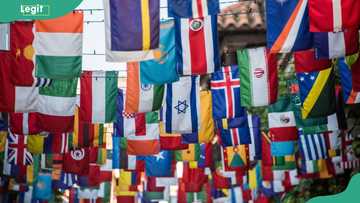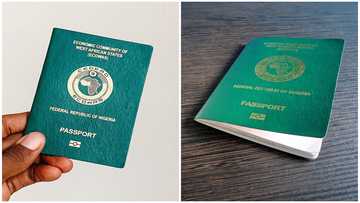Types of citizenship in Nigeria: what are they and how to acquire them in 2024
Today, people visit different countries at will. Sometimes, these individuals consider settling and acquiring citizenship. How does one acquire citizenship in Nigeria? And what are the types of citizenship? To provide clarity, ALN Nigeria | Aluko & Oyebode, a full-service commercial law firm in Nigeria, shared valuable insights on recent policy updates and advice for applicants seeking Nigerian citizenship.
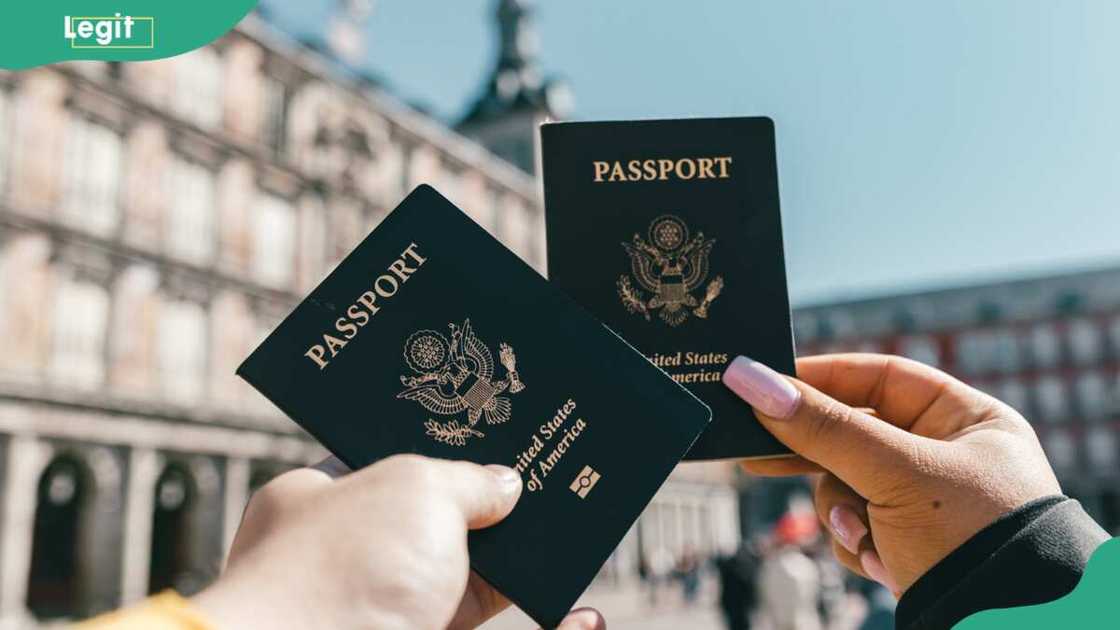
Source: UGC
TABLE OF CONTENTS
- What is citizenship?
- Types of citizenship in Nigeria
- Are there any new policies or regulations in 2024 that affect how foreigners can obtain Nigerian citizenship?
- What challenges or common issues do applicants face when applying for Nigerian citizenship?
- How does Nigeria’s citizenship acquisition process compare to other countries in West Africa?
- Expert tips
- What is dual citizenship?
- Renunciation of citizenship
- Deprivation of citizenship
- What are the benefits of citizenship in Nigeria?
- Are there different types of citizenship in Nigeria?
- What are the ways to acquire a Nigerian citizenship?
- Contact Information
- What is citizenship education in Nigeria?
The Nigerian constitution will help you to understand all the peculiarities of citizenship in Nigeria. Here is everything related to Nigerian citizenship, including the factors one ought to meet to be granted Nigeria dual citizenship.
What is citizenship?
Citizenship is the position or state of being a citizen of a particular country. One gains citizenship by meeting the legal requirements of a nation, state, or local government. The person in question then acquires the rights and privileges of citizens of the respective country.
Types of citizenship in Nigeria
Citizens are an essential part of every nation. All citizens can gain certain rights and duties that are only allowed if they have the country's passport. Every government has its way of determining its citizens, and every country has its rules on how to obtain and lose citizenship.
Citizenship by birth
The provisions of section 25 of the Nigerian constitution states that the following people are to be regarded as citizens of Nigeria by birth:
- People who were born in Nigeria before and after the date of independence;
- People whose parents, grandparents or other relatives belong to indigenous Nigerian communities. What is meant by the indigenous communities from Nigeria? Nigeria is a country with hundreds of tribes, and if your parents or grandparents belong to one of these tribes, you can be or become a citizen of Nigeria by birth. It includes Igbo, Yoruba, Hausa, Fulani, Efik and many other tribes.
- If your parents or grandparents were citizens of Nigeria, you can be or become a citizen of Nigeria by birth; this applies even if you were born in another country.
Citizenship by registration

Source: UGC
The provisions of section 26 of the Nigerian constitution explain that a person who is not Nigerian by birth can become a citizen of Nigeria by registration. A person can apply to become a Nigerian citizen by registration if they satisfy these conditions:

Read also
Japa: 7 documents Nigerian students must have before applying for scholarship in Canada in 2025
- The person is of good character (Two people should testify to this statement; one of them should be a religious minister).
- This person expresses and clearly shows his inclination/desire/wish to be domiciled in Nigeria.
- This person has subscribed to the oath of allegiance to Nigeria, provided by the seventh schedule of the Nigerian constitution.
- Section 26 of the Nigerian constitution also states that a particular category of citizens can apply for Nigerian immigration.
- A woman who is or has been married to a citizen of Nigeria. It also includes every person who has parents or grandparents of any indigenous Nigerian tribe.
Citizenship by naturalization
Naturalization is one of the most common ways of acquiring citizenship in Nigeria. If a person cannot apply to become a Nigerian citizen by birth or registration, he can still apply to become a naturalized Nigerian citizen if he meets these requirements:
- This person is of full age.
- This person is of good character (like in the type before).
- This person has shown a clear desire to be domiciled in the country.
- The governor of the state where the person applying for citizenship wants to reside has to confirm the desire of the community to assimilate this person;
- The person should be capable of contributing to the well-being of Nigeria and its citizens.
- The person has lived in Nigeria for fifteen years preceding the application date.
Are there any new policies or regulations in 2024 that affect how foreigners can obtain Nigerian citizenship?
ALN Nigeria | Aluko & Oyebode, a full-service commercial law firm in Nigeria, said in an interview with Legit.ng that the federal government of Nigeria updated the acquisition and administration of Nigerian citizenship via its (the government) handbook launched in January 2024.
According to law the firm, the handbook prescribed conditions for “citizenship by investment” pegged at a minimum of $1 million.
What challenges or common issues do applicants face when applying for Nigerian citizenship?
ALN Nigeria | Aluko & Oyebode said applicants face several hurdles, particularly in the categories of naturalization and registration. Some of the issues shared includes:
- Bureaucratic delays at various agencies responsible for processing the application. The firm said:
This includes the Federal Ministry of Interior, the Nigerian Immigration Service, and the Federal Executive Council. Applicants may have to wait many years before receiving the approval for citizenship.
- Additional delays to gaining Nigerian citizenship can be tied to applicants undergoing extensive vetting and background checks at the Department of State Services (DSS) and other security agencies.
- The Nigerian constitution and immigration laws provide stringent requirements for obtaining Nigerian citizenship, particularly citizenship by naturalization.
- Gender discrimination in registration: According to the firm, Nigerian law allows foreign women married to Nigerian men apply for citizenship through registration, while foreign men married to Nigerian women do not enjoy the same privilege, which has remained a challenge for many families.
How does Nigeria’s citizenship acquisition process compare to other countries in West Africa?
The citizenship process in Nigeria is rigorous compared to some neighboring West African countries. ALN Nigeria | Aluko & Oyebode shared few key differences:
Dual citizenship policies
Nigeria allows dual citizenship only for citizens by birth. In contrast, some countries have more flexible policies regarding dual citizenship for all citizens, whether obtained by birth, registration, naturalization, or investment.
Expanded pathways to citizenship
Nigeria's pathway to citizenship is not as broad as other countries. The law firm explains:
For example, in certain countries, citizenship is conferred automatically on children of not more than 7 years of age with known or identifiable parents and children below 19 years of age adopted by nationals.
Judicial appeal
In some countries, applicants have a mechanism to appeal denials, while in Nigeria, applicants will need to address the queries or reasons for the denial and reapply through a new application process.
Cultural integration
Some countries emphasize cultural integration, such as possessing landed properties and the ability to speak an indigenous language, which Nigeria does not require.
Expert tips
To enhance the likelihood of success when applying for Nigerian citizenship, ALN Nigeria | Aluko & Oyebode offers the following advice:
- Applicants should understand the eligibility criteria for Nigerian citizenship, such as residency duration, age, socio-economic contributions (for citizenship applicants by naturalization), and acceptable guarantors.
- Ensure that required documents, such as completed citizenship application forms, birth certificates, proof of residence, marriage certificates (if applicable), and any other relevant identification, are valid.
- Applicants must adhere to all legal requirements set by Nigeria’s Ministry of Interior, complete all forms accurately, and obtain all necessary documents per the law.
- Keep abreast of changes in citizenship laws or application processes; this can help avoid delays due to outdated information.
- Lastly, applicants are advised to consult an immigration lawyer who is familiar with Nigerian citizenship laws for assistance at an early stage.

Read also
"No more N10m": Australia announces new student visa rules, closes door Nigerians exploit for cheaper studies
What is dual citizenship?
Dual citizenship means that an individual is a national of two countries at the same time. The person shares the same rights and responsibilities as the citizens in each country. It is a legal status offered to a person with citizenship in two countries.
Having dual citizenship offers more control and independence, whether it means more freedom to fly to more countries or reside in other jurisdictions.
Does Nigeria allow dual citizenship?
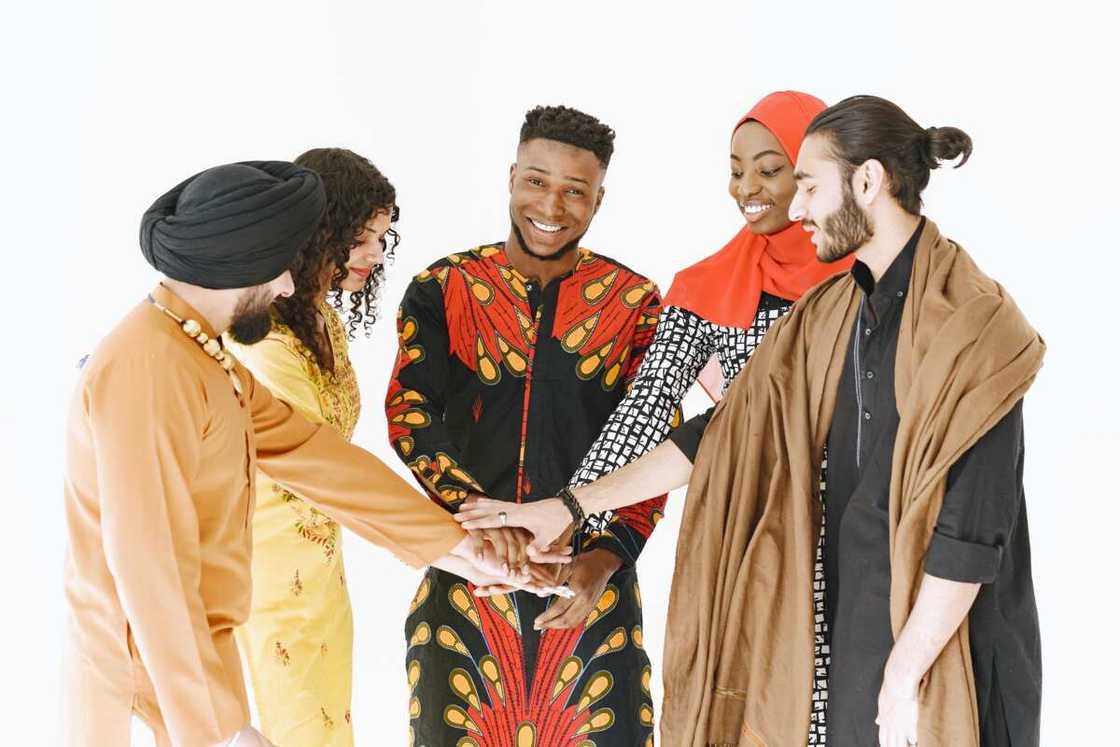
Source: UGC
Yes, it is currently legal in Nigeria to hold dual citizenship, also referred to as dual nationality. The policy was approved in the early nineties by General Ibrahim Babangida, the head of state. This way, after an in-depth investigation and committee recommendation.
The policy was enacted into law by decree, allowing numerous Nigerians abroad to acquire citizenship under this category.
What is the eligibility for dual citizenship in Nigeria? According to Section 25 of the 1999 constitution, dual citizenship is allowed for individuals who possess a Nigerian parent, citizens by descent. The person ought to be born in Nigeria after October 1, 1960, and possess either a Nigerian parent or grandparent.

Read also
UK govt releases list of over 2000 companies approved to sponsor work visas as job scams hit Nigerians hard
The constitution goes further to explain the circumstances surrounding dual citizenship in Nigeria in Section 28. It states that a person with Nigerian citizenship, by means other than birth, but retains the citizenship of another country must relinquish their Nigerian citizenship.
Also, one can get Nigerian citizenship as second citizenship if their first citizenship was obtained by birth. Anyone looking to acquire Nigerian citizenship by registration or naturalization must renounce citizenship of other countries not obtained by birth.
How to apply for dual citizenship in Nigeria
Is there a standard application for dual citizenship in Nigeria? One ought to apply in person by using the following procedures:
- First, visit the citizenship and Business Department of Interior Ministries.
- Obtain the dual citizenship application form from the respective office.
- Complete the form with accurate details under all relevant sections. Ascertain that you attest it with your signature once complete.
- Attach all documents requested by the immigration department.
- Submit the application form in person to the relevant authority office. Also, make the required payment as directed by the officials.
- Once submitted, the applications and attached documents are forwarded for verification and validation.
- After confirming that everything is in order, the officials will proceed with further action as required.
- If everything is okay and the process is over, you will be called to collect the document.

Read also
"They paid millions": Nigerians stranded in UK, advised to return after falling victim of visa scam
What documents are required for the dual citizenship application process?

Source: UGC
Here are the required documents one should have.
- Completed application form
- Passport size photographs
- Birth Certificate
- Proof for livelihood means
- Certificate for Tax Clearance
- Permit for Residence in Nigeria
- Valid International Passport with five pages at least
- Documents of guarantors (as instructed)
- Valid Identification document
- Proof of applicant's Socio-Economic Contributions
Requirements for travelling with dual passports in Nigeria
Before figuring out how to get a 2nd passport, you should know the requirements of dual passport holders. Countries that allow dual citizenship, like Nigeria, mean that some residents will have more than one passport.
How does one travel from one country to another or visa-free countries with dual passports? First, dual citizenship allows one to use another passport instead of a Nigerian one to travel to another destination.
Therefore, if one wants to travel to a country that doesn't recognize a Nigerian passport, it is better to use the other country's passport if allowed. For instance, a Nigerian cannot travel to the UK or Russia using a Nigerian passport.
However, Nigerians possessing Dominica (one of the best Citizenship-by-Investment countries) passports can travel directly from Nigeria to the UK using the passport without going through a neutral country.
Dual passport holders in Nigeria who renounce their citizenship due to living in a country that does not offer similar services have specific visa-type visits to Nigeria. This means that dual passport holders benefit from access to the Nigerian visa-on-arrival.
What countries allow dual citizenship for Nigerians?
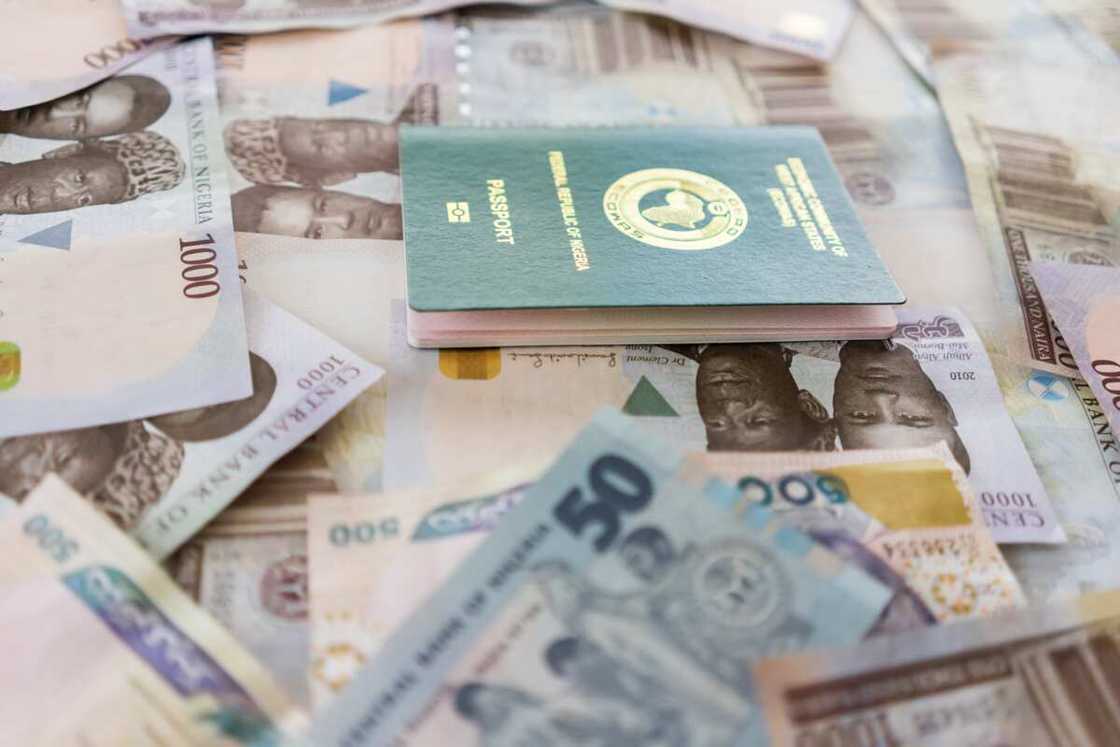
Source: Getty Images
What is the easiest country to get citizenship in the world? All over the world, people obtain dual citizenship to access the significant benefits of dual nationality.
And Nigerians are among the enormous population of people obtaining second citizenship in areas such as Caribbean nations, America, Canada, Portugal, and more. Countries that allow dual citizenship provide different programs for those seeking to acquire such.
One of the best strategies and most utilized by Nigerians is the Citizenship-by-Investment program. This is common for Caribbean countries that provide various investment options for people looking to acquire dual citizenship.
Nigerians can access the dual citizenship-by-Investment program from the following countries:
- St Kitts & Nevis
- St Lucia
- Grenada
- Dominican Republic
- Antigua and Barbuda
- Vanuatu (one of the best countries with Citizenship by Investment)
The above Caribbean citizenship programs are amongst the most popular in the world. You can access such from any licenced agent for citizenship, such as Migronis. Also, Nigerians can gain citizenship from the following countries through other means and not investment citizenship:
- Turkey: Through the Second Citizenship Program.
- Portugal: Via the Golden Visa Program.
- Bulgaria: Through the Residency and Citizenship program.
- Greece: Via the Golden Visa Program.
- Canada: Through the permanent resident program.
- USA: Through the EB2 Green Card
Renunciation of citizenship
A person of full age can renounce their citizenship by applying to the President. The President will register the application, upon which the person will cease to be a citizen of Nigeria. However, the President may reject the application if Nigeria is at war.
Deprivation of citizenship
Did you know that the President can deprive you of your citizenship in Nigeria? Any naturalized citizen of Nigeria can be deprived of their citizenship if imprisoned for more than three years within the seven years after the naturalization.
Any citizen of Nigeria by naturalization or registration can be deprived of citizenship if they prove disloyal. The statement of their disloyalty should be confirmed in a court of law.

Source: Getty Images
The citizens of Nigeria, by registration or naturalization, can be deprived of citizenship if it is proven that they are enemies of the country or have collaborated with enemies of the country. This includes conducting business deals with organizations who fight against Nigeria and applies to traitors who have fought against Nigeria.
The President can also make decisions regarding the citizenship of anyone in the country. However, this is not written in the constitution. This kind of decision should be submitted to and approved by the National Assembly.
What are the benefits of citizenship in Nigeria?
Some of the benefits of citizenship in Nigeria are:
- You have the right to live and work in Nigeria without any restrictions.
- The right to participate in the democratic process by voting in elections and running for political office.
- Citizens can access government-provided social services such as healthcare, education, and social welfare programs.
- You have the right to a fair trial and equal legal protection.
- The Advantage is getting government jobs and positions reserved exclusively for Nigerian citizens.
Are there different types of citizenship in Nigeria?
The different types of citizenship in Nigeria are citizenship by birth, citizenship by registration and citizenship by naturalization.
What are the ways to acquire a Nigerian citizenship?
There are three ways by which you can attain citizenship in Nigeria. They are citizenship by birth, citizenship by registration, and citizenship by naturalization.
Contact Information
Individuals can contact ALN Nigeria | Aluko & Oyebode via aoimmigration@aluko-oyebode.com for additional guidance on Nigerian citizenship.
What is citizenship education in Nigeria?
This is an educational program and initiative designed to promote civic awareness, civic participation, and a sense of civic responsibility among Nigerian citizens.
The above is a complete overview of dual citizenship and the types of citizenship in Nigeria. Do not be afraid to take another country's citizenship if you meet their requirements.
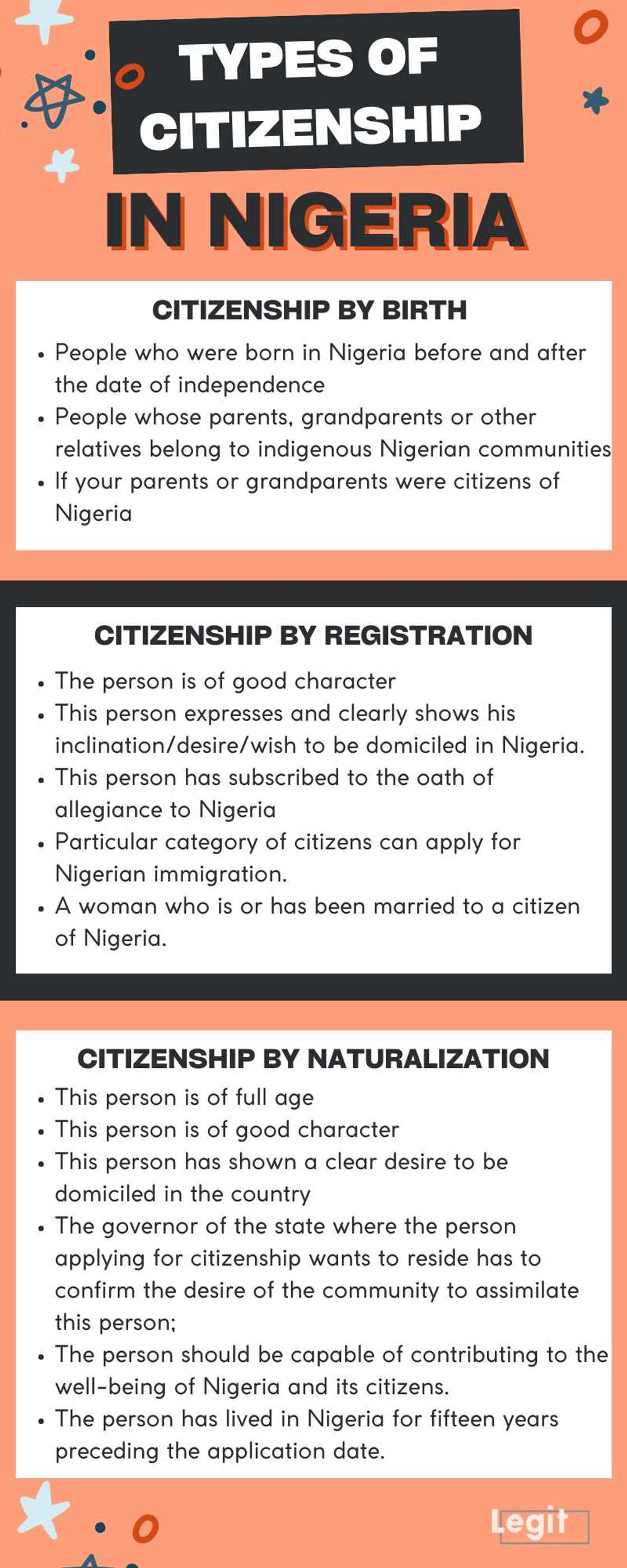
Source: Original
Legit.ng recently published a comprehensive guide on the main features of democracy. This is a system of government in which the people have power.
Democracy is the most commonly accepted form of governance on the planet. It is founded on liberty, transparency, and the rule of law. It enables citizens to engage in popular sovereignty and decision-making by holding free and fair elections.
Source: Legit.ng

Jackline Wangare (Lifestyle writer) Jackline Simwa is a content writer at Legit.ng, where she has worked since mid-2021. She tackles diverse topics, including finance, entertainment, sports, and lifestyle. Previously, she worked at The Campanile by Kenyatta University. She has more than five years in writing. Jackline graduated with a Bachelor’s degree in Economics (2019) and a Diploma in Marketing (2015) from Kenyatta University. In 2023, Jackline finished the AFP course on Digital Investigation Techniques and Google News Initiative course in 2024. Email: simwajackie2022@gmail.com.

Simon Ayub (Project Manager)


